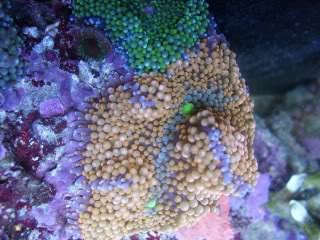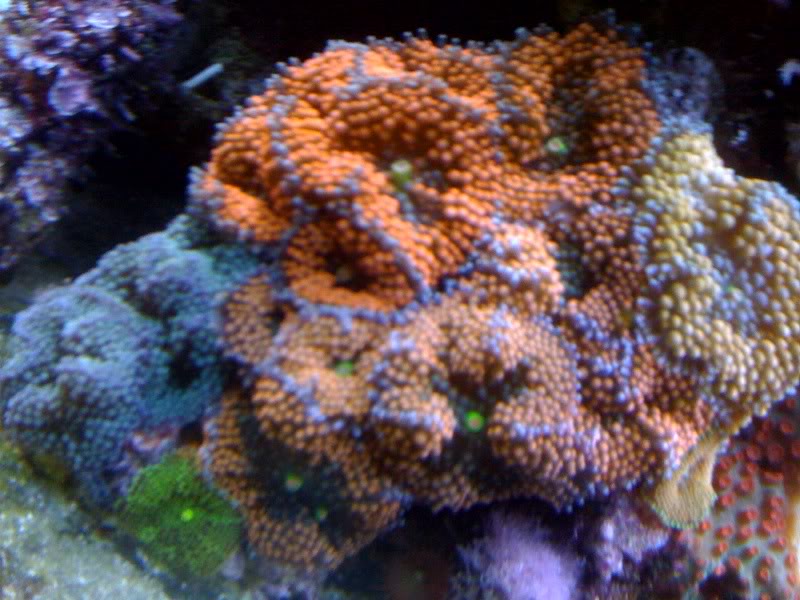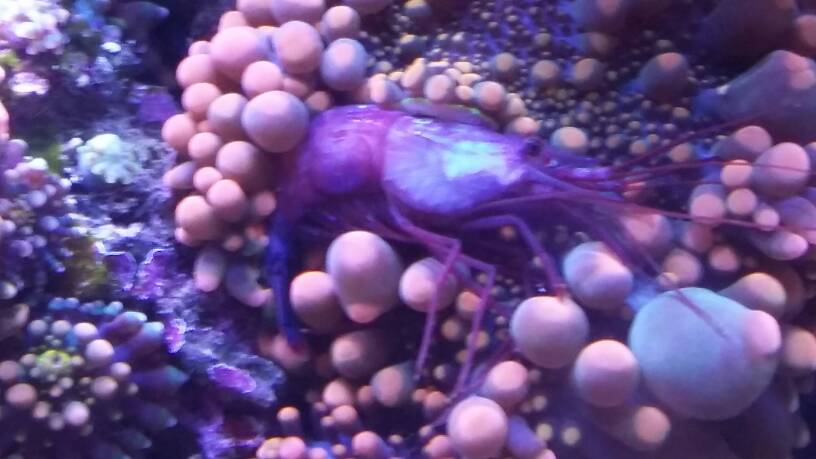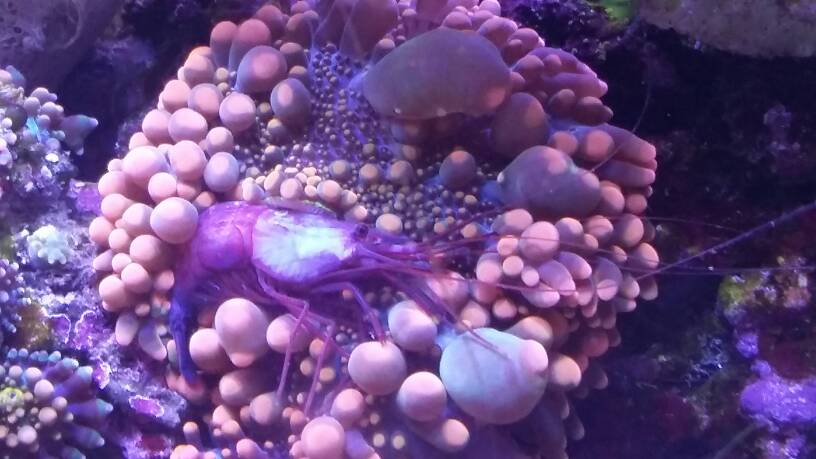Florida Ricordea

Common Name: Mushroom Coral, Florida False Coral, Anemone Corals, Mushroom Anemones, Ricordea
Origins: Tropical Western Atlantic Ocean: Southern Florida to Brazil, Gulf of Mexico, Caribbean
Husbandry: These are mostly photosynthetic corals, which are approximately 1 – 3 inches in diameter, are among the easiest of all corals to maintain because they do better in somewhat nutrient rich surroundings. They are not true anemones, nor are they true corals, however, they are somewhere in between or more appropriately a comparative anatomy or simply put, a morph.
Flow: The general consensus i have observed is that they like a medium/high flow. They seem to expand bigger and receive a better growth rate in my tank with these conditions.
Lighting: Since in the wild these animals live in shallow reef areas, they love light. I have mine under T5's at the moment, but they thrive under Halides, and somewhat under PC's.
Feeding: Even though the majority of its nutrition mainly comes from its ability to photosensitize, this animal has short tentacles and is also a suspension feeder. And as with any animal with tentacles, they can be fed. Those in my aquariums have responded nicely to zooplankton-like foods such as Cyclop-eeze and baby brine shrimp.
Growth rate: Usually depends on tank conditions and many other variables, such as lighting, flow, nutrient content etc. I have seen around 1 split per 1-2 months.
Color morphs: They come in all types of colors, such as, orange, blue, green, purple, yellow/gold, pink, etc.
Confusions: Usually identified wrong as a Ricordea Yuma or some other Corallimorpharian.
*Note: Feel free to comment*
Enjoy,
Steven
Mushy Mod

Common Name: Mushroom Coral, Florida False Coral, Anemone Corals, Mushroom Anemones, Ricordea
Origins: Tropical Western Atlantic Ocean: Southern Florida to Brazil, Gulf of Mexico, Caribbean
Husbandry: These are mostly photosynthetic corals, which are approximately 1 – 3 inches in diameter, are among the easiest of all corals to maintain because they do better in somewhat nutrient rich surroundings. They are not true anemones, nor are they true corals, however, they are somewhere in between or more appropriately a comparative anatomy or simply put, a morph.
Flow: The general consensus i have observed is that they like a medium/high flow. They seem to expand bigger and receive a better growth rate in my tank with these conditions.
Lighting: Since in the wild these animals live in shallow reef areas, they love light. I have mine under T5's at the moment, but they thrive under Halides, and somewhat under PC's.
Feeding: Even though the majority of its nutrition mainly comes from its ability to photosensitize, this animal has short tentacles and is also a suspension feeder. And as with any animal with tentacles, they can be fed. Those in my aquariums have responded nicely to zooplankton-like foods such as Cyclop-eeze and baby brine shrimp.
Growth rate: Usually depends on tank conditions and many other variables, such as lighting, flow, nutrient content etc. I have seen around 1 split per 1-2 months.
Color morphs: They come in all types of colors, such as, orange, blue, green, purple, yellow/gold, pink, etc.
Confusions: Usually identified wrong as a Ricordea Yuma or some other Corallimorpharian.
*Note: Feel free to comment*
Enjoy,
Steven
Mushy Mod
























